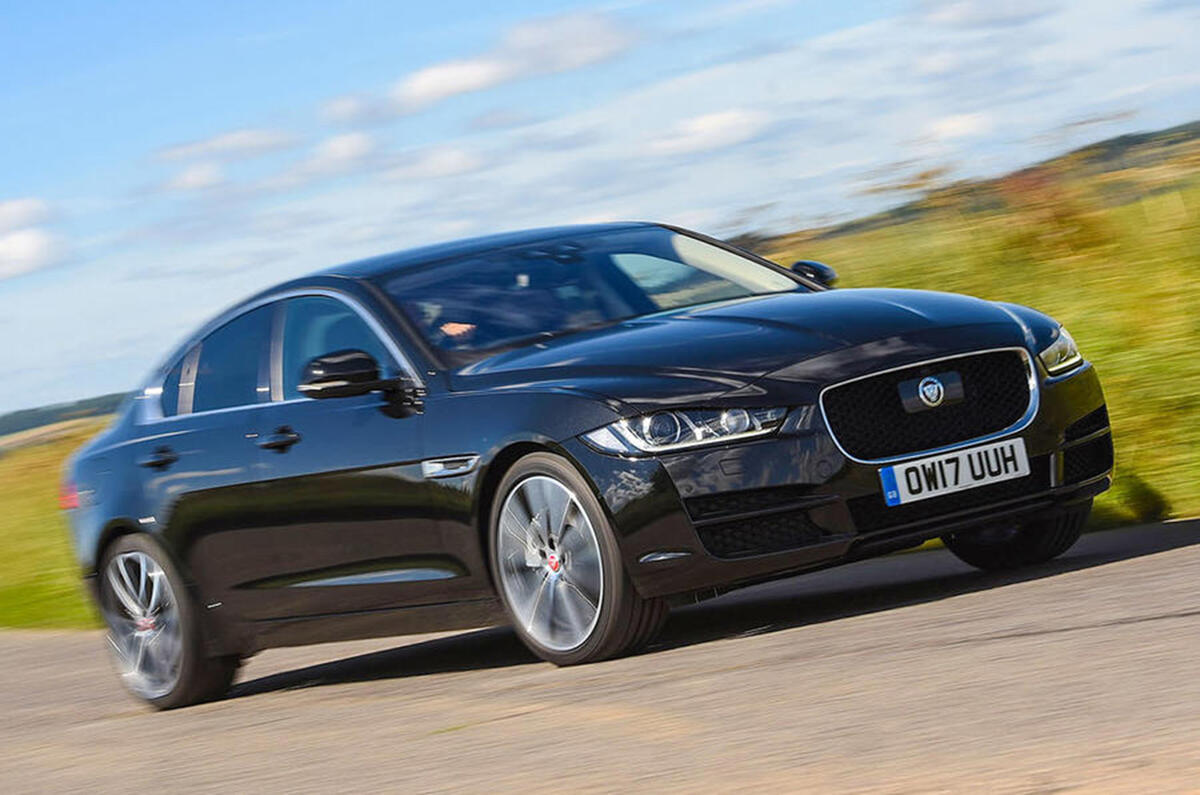A rise in average CO2 emissions from falling diesel car sales will soon become a big, prominent issue the car industry will have to deal with.
That's according to Jaguar Land Rover (JLR) group sales operations director Andy Goss, who said the rise in CO2 emissions was inevitable in the short term as buyers were turned off by diesel and went back to petrol instead, in lieu of a market full of plug-in hybrid and electric alternatives.
Insight: Is it time to give up on the diesel engine?
Indeed, in 2017, average CO2 emissions rose by 1g/km in the UK, the first increase since records began in 2002, as buyers turned away from the black pump due to the bad press and punitive tax changes made by the Government to put people off the fuel.
"The CO2 issue is not very well articulated at this stage," said Goss, who was announcing JLR's record annual results for new car sales in 2017. "It needs to be. We need a balance on this, and we will try and articulate it ourselves.
"The CO2 agenda has not gone away. It's not just about CO2 or NOx – each is an agenda. All manufacturers are investing in electrification; it's in all interests to navigate a glide path together."
Goss said that the switch away from diesel was not currently impacting on any of JLR's future investment plans, because its new range of four-cylinder Diesel engines were part of the wider Ingenium family, with flexible production at the firm's Wolverhampton engine plant. However, it did cast long-term doubts over the future of the fuel.
Booming Range Rover Velar interest led to early sales complacency, admits boss
"It's not affecting future investments," said Goss. "With Ingenium engines, we can flip-flop between the two. Is there a way back for diesel? That's impossible to answer, but fiscal policy is only going in one direction. That brings CO2 awareness - in a move to petrol, CO2 emissions go up. It's a worry."
Goss is confident JLR can still meet its EU-mandated target for average CO2 emissions of new cars sold in the EU, believed to be around 130g/km. But he said the sharp, unexpected switch away from diesel "provided an extra challenge to hit the target".
Diesel sales in the UK are likely to take yet another hit from April, when taxation will increase unless they meet a certain certification standard – the test for which doesn't even exist yet.
Jaguar Land Rover sales boss: Budget diesel taxation “counterintuitive”
"It's difficult to fathom the latest decision in the budget," said Goss on the government's plans. "I'm not saying it's short-termism, but without other things in place like scrappage, it's difficult to see an end-to-end decision process."
Goss said he was broadly happy that the government worked with JLR and the industry, but wanted to see a more "hand-in-glove approach with policy".
"We employ 40,000 people in the UK, and our suppliers many more. We're investing billions in technology while exporting 80% of what we make. It's of huge benefit to the economy. We expect a hand-in-glove approach with policy so that there are no surprises. Planning takes huge time and investment, so it's a sensible request, really. It's not a manufacturing issue, but it's another challenge on top of other ones - so why now?"








Join the debate
Add your comment
Says the boss of JLR, who
As much as ingenium engines
As much as ingenium engines are slated by people I am impressed by JLR’s ability to easily switch the production line between the two engines. That’s good engineering
Problem or opportunity
I can't see that rising CO2 is a problem for JLR. It just means that the company must pay the fines for failing to meet targets, which they can surely pass on to customers?
Of course they could increase the numbers of hybrids which would be a profit opportunity, or they could import a range of small Tata cars to offset the high CO2 Land Rovers and Jaguars. Let's face it when BMW, Mercedes, Audi etc all sell small cars, then it is a big weakness for JLR not to have a similar range.